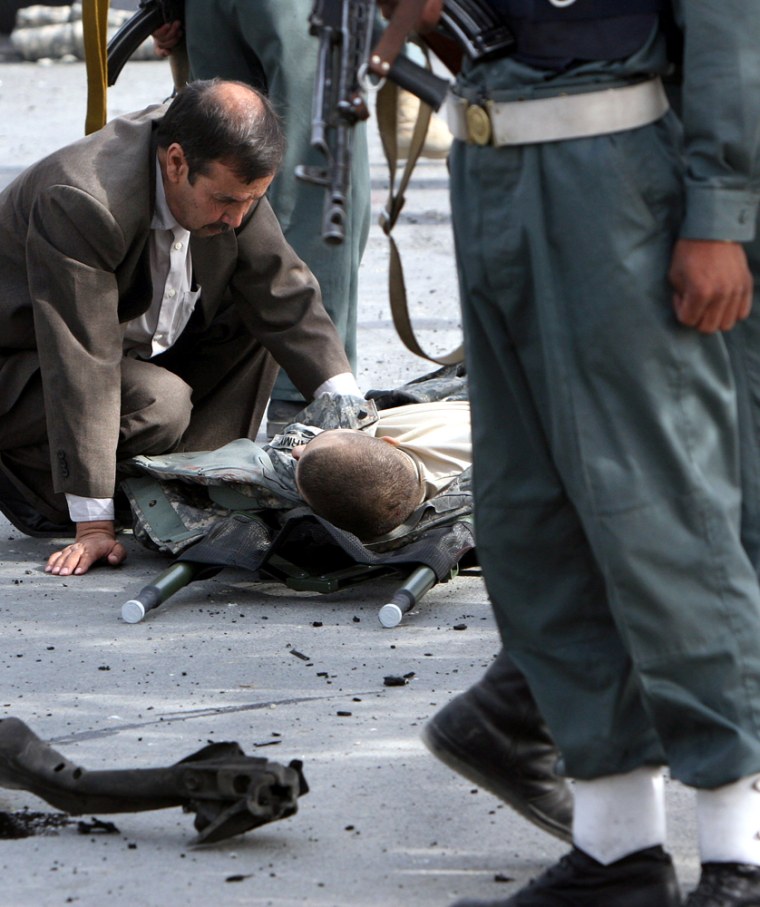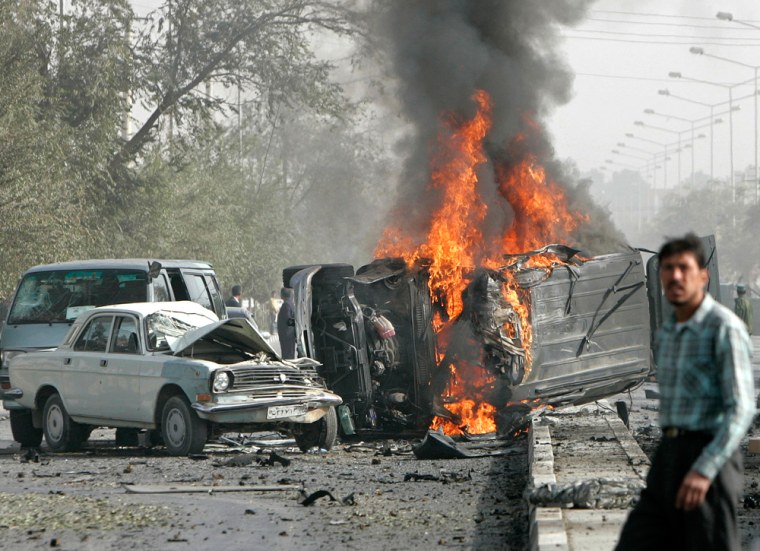A Taliban suicide car bomb killed five Afghan civilians and a U.S. soldier in Kabul on Saturday, the third such attack in the capital in eight days in a Taliban offensive launched during the Muslim holy month of Ramadan.
At least 47 people have been killed in the three suicide attacks in Kabul, normally more peaceful and secure than the restive south.
The Afghan government and foreign troops are struggling to stop suicide attacks which sap faith in their ability to provide security and develop a country ravaged by 30 years of war.
“A routine convoy operation here in Kabul today was hit by a suicide, vehicle-born, improvised explosive device,” said U.S. military spokesman Lieutenant-Commander Clint Larson. “One U.S. soldier was injured in the attack. He has since died of his wounds.”
Two large, black Chevrolet four-wheel drive vehicles were hit by the blast. One of the vehicles lay on its side engulfed in flames, the other received minor damage.
“I can see fire and smoke coming from the foreign vehicles,” said one witness, Ghiasuddin Barez. “The explosion took place about 100 meters (yards) in front of me. There were two black vehicles on fire and people running and screaming.”
The Taliban claimed responsibility for the attack, part of their Nasrat (Victory) offensive during Ramadan. Taliban fighters believe there will be more rewards in heaven for those killed for their cause during the holy month of fasting.
Five Afghan civilians were killed and five wounded in the blast, the Interior Ministry said in a statement.
“It is very difficult to prevent such attacks,” the ministry’s Counter-Terrorism chief Abdulmanan Farahi told a news conference. Afghan police and foreign forces have increased the number of checkpoints and patrols in Kabul to tackle the threat of suicide bombs, he said.
Most of the suicide bombers were foreigners, he said -- either Arabs, Chechens or Pakistanis.
Khost bomb kills five
Witnesses saw a U.S. soldier lying wounded on a stretcher and receiving first aid. There were no other foreign troops wounded in the incident, Larson said.
“I was sitting just over there reading a book,” said another witness, Zekeria January “Suddenly, I heard a bang. I was shocked and fell to the ground. I saw two cars hit by a suicide bomber. Then I was unconscious.”

After suffering heavy casualties in conventional battles, Taliban rebels have grown increasingly reliant on suicide attacks in the last two years. The United Nations says the number of security incidents in Afghanistan has increased in 2007, though the scale of military clashes has decreased.
In a separate attack, five Afghan police were killed by a roadside bomb north of the eastern city of Khost, a provincial health official said.
Three German soldiers and their Afghan translator were also wounded in a suicide attack in Kunduz province in the north on Friday, the provincial police chief said.
Some 50 Taliban rebels, along with four commanders surrendered to government forces and had joined the reconciliation process in the province of Ghazni, southwest of Kabul, the provincial governor said.
Ghazni, previously considered largely safe, has seen rising violence this year with Taliban insurgents kidnapping 23 South Koreans there in July. The Taliban killed two of the Koreans, but freed the other Koreans a month later.
“I guarantee within one month, there won’t be any Taliban in Ghazni,” the governor told a handover ceremony.
